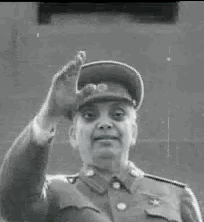
A disaster for students and good teachers alike.
"All Government employees should realize that the process of collective bargaining, as usually understood, cannot be transplanted into the public service. It has its distinct and insurmountable limitations when applied to public personnel management.”
The above caveat about government unions – usually known by the kinder and gentler “public employee unions” – was not issued by the Koch Brothers or Donald Trump. The statement was made by none other than progressive icon Franklin Delano Roosevelt. Additionally, George Meany, president of the AFL-CIO for 24 years, once stated, “It is impossible to bargain collectively with the government.” Both men understood that the very nature of government makes it wrong for its leaders to enter into negotiations with any union. When government unions negotiate, they often sit across the table from people they helped put in office with generous campaign contributions. And when these unions go on strike, they walk out on the taxpayer.
In the private sector, if a business is forced to pay its workers more money, those costs are passed on to the consumer. If the cost of a product is raised too high, the purchaser can choose to go elsewhere. Most unions get this and realize they can’t bargain for excessive salaries and perks. But some unions push things too far and ultimately price their members out of a job. An example of the latter is the United Auto Workers, whose exorbitant demands drove car buyers to Japanese models and automakers to produce cars elsewhere, thus sending Detroit down the road to ruin.
But the government unions are always a nightmare for consumers, as they can’t shop elsewhere for services provided by the state, because the government has a monopoly on them. When union negotiators and elected officials agree on exorbitant pay packages and protections for cops, prison guards, firemen and teachers, what can the public do? Call a different fire department if their house is burning down?
There is an exception here with schools, but unless there is a parental choice system in place, where public tax money follows the child, only the well-to-do really have a choice. In exercising that option, they must pay twice, however – in state and local taxes which go to their local public school and tuition payments for...

















 URISKO TWEET.
URISKO TWEET.






